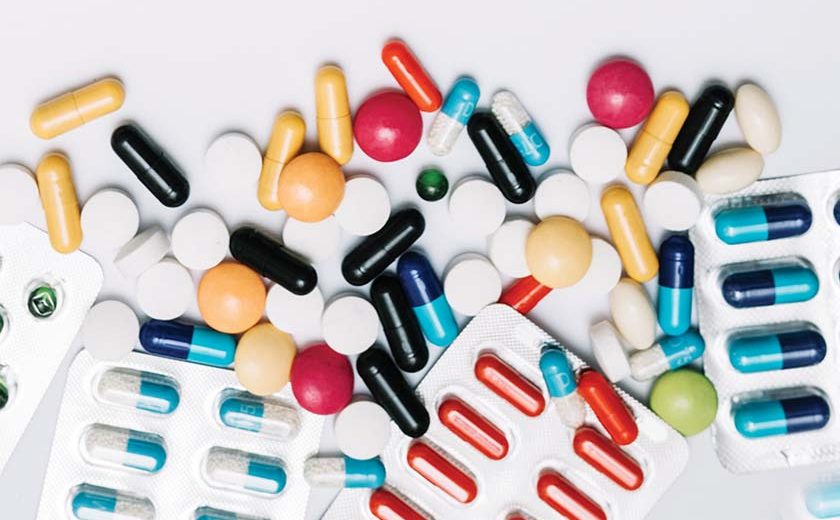Being healthy today seems to be quite a struggle for countless adults, especially those who are just too busy to eat wholesome meals on a day to day basis.
It’s no secret that our bodies need sufficient nutrients to function properly, whereby severe deficiency of certain nutrients may result in grevious results to one’s health. This is probably why people everywhere are turning towards nutritional supplements – to help close the gaps between what they’re getting and what they need.
Multivitamin
Multivitamins is known as the golden child of health supplements and is regarded by many as a health ‘insurance’ of sorts. We take them to give our bodies a fighting chance at acquiring all the important vitamins and minerals we need for all sorts of important bodily functions. Picking out a good one can be tricky, but you can get your pharmacists to help you with that. Among the factors to consider is the price, for you’ll want one you can afford to keep buying for regular consumption. Also, ensure that the supplement you pick is not overloaded with more nutrients that your body can use.
Taking any variant of supplement does not mean we can now skimp on consuming enough wholesome foods like fruits and vegetable, but instead, we should take them as a second line of defense in terms of upkeeping our health. It’s discouraging to know though, that most of us reading this aren’t getting a healthy dose of daily allowance of vitamins and minerals through food alone.
Apart from a good choice of multivitamins, here are a handful of other important supplements to consider as your health insurance.
Omega-3
Omegas-3s are a healthy fat our bodies need for proper brain functions, improved immunity as well as for quicker inflammatory responses. They are the building blocks of the brain and a deficiency may actually affect your overall mood! There have been evidences too, that omega-3 fatty acids can help improve sleep, and boost libido as well. Omega 3s can be found in abundance in foods like salmon and other fatty fishes, walnuts and dark leafy greens, which is why, unless you have an allergy to any of these, you should be consuming foods like these everyday.
It’s also important to maintain a proper omega-3 to omega-6 ratio in your body. You need both of these fatty acids to stay healthy, however problems arise when your intake of omega-6 fatty acids (which are often inflammatory) outweighs your consumption of omega-3 fatty acids (which are anti-inflammatory). Ideally, we need to be on a diet consisting of an omega-6 to omega-3 ratio of 1:1. What most of us are facing however, by eating too much processed foods, refined oils, and not enough fruits and vegetables, is an omega-6 to omega-3 ratio of 15:1 to 17:1.2 This ratio is basically a recipe for disaster, in terms of our health. . That’s where Omega-3 supplements come in. Ask your pharmacist for a good recommendation.
Probiotics
All diseases begin and end in the gut – Hippocrates. The world of medicine has its attention now turned toward the microbes that live in our gut, for it has been discovered that they play a big role in preventing and even reversing all kinds of diseases!
So now we know too that nearly 80% of our immune system is located in the gut, and up to 95% of your serotonin (the neurotransmitter responsible for regulating mood) is produced in the gut. Is this why so many of us are falling sick so often – from a lack of good gut health? After all, we’ll need to consume foods like kimchi, kefir, sauerkraut, kombucha, etc to keep the delicate balance in our gut going. If this balance is thrown off, which is the case for most of us, it can lead to a whole host of problems, including autoimmunity, depression, anxiety, and leaky gut, etc.
This is why taking a probiotic every day may be the best thing we can do for our health! It can help keep our microbiome in balance, which promotes a healthy GI tract, relieves digestive discomfort, promotes a normal bowel pattern, and supports overall wellness.

Vitamin D
Vitamin D is unique in a sense that our bodies can make this vitamin on its own when our skin is exposed to sunlight. What many of us probably never realised is, that Vitamin D is converted into a hormone in your body. Hormones are our body’s chemical messengers. They travel through your blood to our tissues and organs activating chemical reactions that control everything from metabolism, to growth and development, to mood. There are thousands of chemical reactions in our bodies that require the presence of adequate amounts of vitamin D in the blood. Vitamin D contributes to bone strength, heart health, and cancer prevention. It also plays an important role in our immune system, and can be a determining factor in whether or not we develop an autoimmune disease.
Studies estimate that one billion people worldwide have insufficient vitamin D levels!. When picking out a vitamin D supplement,select one with vitamin K, a fat-soluble vitamin that is necessary for our body to properly absorb vitamin D. This combination of vitamins D and K supplement is what most of us need. However, do not exceed 5,000 IU of vitamin D3 per day without a physician’s supervision.
For more on Vitamin D, check out our article this month by Mathew Sarji.
Vitamin C
Vitamin C is probably the most popular vitamin supplement all over the world, where higher blood levels of it seems to be the ideal marker for better overall health. Vitamin C, while popularly known as the beauty vitamin for the integral part it plays in our skin health, has also been found to play a few important roles in preventing some serious health complications by protecting our immune system. This powerful vitamin also helps prevent cardiovascular diseases, prenatal health problems and eye diseases.
500 daily milligrams of vitamin C in supplement form is said to be enough to achieve health results. That is, however, in addition to eating five servings of fruits and vegetables, which are the foods found to be abundant in Vitamin C. Most people nowadays don’t consume that much fresh fruits and vegetables, especially on a daily basis, hence experts find that the safe ‘upper limit’ is 2,000 miligrams daily of a non-acidic, buffered form of the vitamin to help achieve the best health results.


